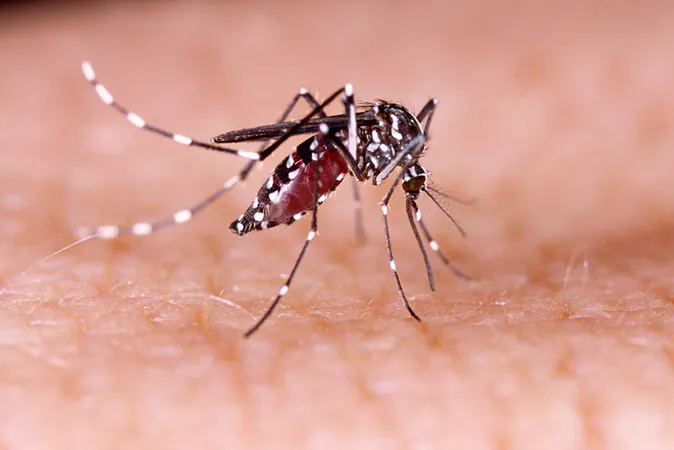
Could T Cell Memory Be the Key to Understanding Chronic Pain Linked to Chikungunya?
2025-05-28
Author: Nur
The Hidden Aftermath of Chikungunya Infection
While most people recover from the Chikungunya virus (CHIKV) within weeks, a staggering 60% of patients face a relentless battle with debilitating joint pain known as arthralgia. This condition can mimic autoimmune disorders like rheumatoid arthritis and persist for months, or even years.
Revolutionary Insights from Immunology Research
In an eye-opening study published in *Cell Reports Medicine*, scientists at the La Jolla Institute for Immunology examine how our immune system reacts to CHIKV and how this response could explain the long-term pain plaguing many survivors.
Senior author Dr. Daniela Weiskopf highlights the alarming similarities between chronic symptoms of CHIKV and autoimmune diseases. As researchers delve deeper into the immune mechanisms, the findings promise to reshape our understanding of lingering effects related to viral infections.
Understanding T Cell Responses
The researchers sourced samples from 39 individuals infected during the 2014-2015 outbreak in Colombia. Using advanced techniques to stimulate immune cells, they discovered pronounced CD4+ T cell responses in those suffering from chronic joint pain, particularly against specific CHIKV proteins.
Furthermore, symptomatic individuals had significantly reduced levels of Th1 CD4+ T cells, instead generating high levels of tumor necrosis factor alpha (TNF-α), a key inflammatory cytokine. This contrasts starkly with recovered patients, who typically produced interferon gamma (IFN-γ), a broader, more protective immune signal.
The Link Between Viral Infections and Autoimmune Disorders
The study’s findings shed light on the enigmatic phenomenon of prolonged joint pain following CHIKV infection. Remarkably, even two years post-infection, 87% of patients retained CHIKV-specific memory CD4+ T cells, suggesting that these immune cells may play a role in chronic symptoms.
As co-author Rimjhim Agarwal points out, there's growing recognition of how viral infections can trigger autoimmune-like responses, a concern echoed by the long-term effects of recent pandemics.
Implications for Future Treatments
These compelling insights may pave the way for innovative treatment strategies aimed at mitigating the harmful inflammation associated with CHIKV, offering hope to those enduring arthritis-like symptoms long after the virus has left their system.
As research progresses, understanding the intricate relationship between viruses and autoimmune diseases could change the game in how we approach chronic viral complications.

 Brasil (PT)
Brasil (PT)
 Canada (EN)
Canada (EN)
 Chile (ES)
Chile (ES)
 Česko (CS)
Česko (CS)
 대한민국 (KO)
대한민국 (KO)
 España (ES)
España (ES)
 France (FR)
France (FR)
 Hong Kong (EN)
Hong Kong (EN)
 Italia (IT)
Italia (IT)
 日本 (JA)
日本 (JA)
 Magyarország (HU)
Magyarország (HU)
 Norge (NO)
Norge (NO)
 Polska (PL)
Polska (PL)
 Schweiz (DE)
Schweiz (DE)
 Singapore (EN)
Singapore (EN)
 Sverige (SV)
Sverige (SV)
 Suomi (FI)
Suomi (FI)
 Türkiye (TR)
Türkiye (TR)
 الإمارات العربية المتحدة (AR)
الإمارات العربية المتحدة (AR)